Animals
-
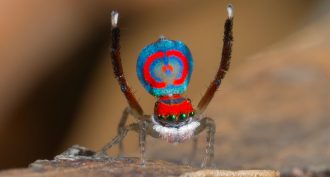 Animals
AnimalsPeacock spider’s radiant rump comes from teeny tiny structures
Male peacock spiders have highly colored hind ends that they shake to attract females. Scientists have now figured out the physics responsible for those hues.
-
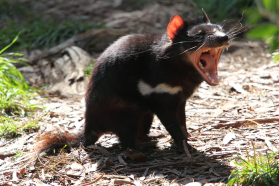 Animals
AnimalsTasmanian devils begin to resist infectious cancer
A deadly contagious cancer is spreading among Tasmanian devils. But the animals are evolving resistance, a new study finds.
-
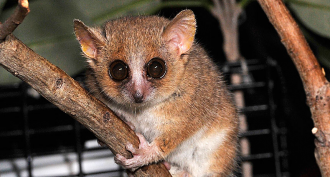 Life
LifeSurprising primate fossils found in an Indian coal mine
Bones of a 54.5-million-year-old primate suggest India might have been a hotbed of early primate evolution.
By Bruce Bower -
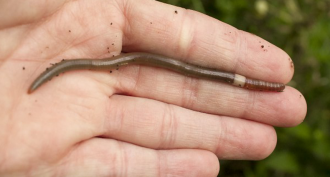 Ecosystems
EcosystemsEarthworms: Can these gardeners’ friends actually become foes?
Asian jumping worms can strip leaf litter from floor of U.S. forests, new data show. Many native plants need that leaf litter for their seeds to germinate.
-
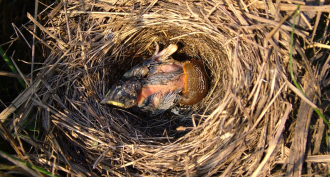 Animals
AnimalsGiant slugs snack on baby birds
When they accidentally run into bird nests sitting on the ground, some slugs help themselves to a free, easy meal of bird chicks.
-
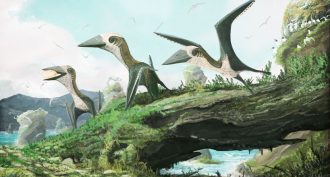 Fossils
FossilsMini pterosaur from the age of flying giants
Not all pterosaurs flying the Cretaceous skies had a wingspan as wide as a school bus is long. Some, new fossils show, were smaller than modern eagles.
By Meghan Rosen -
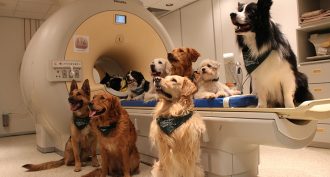 Brain
BrainGood dog! Canine brains separate tone of speech from its meaning
Dogs brains divide up the tasks of interpreting words and interpreting emotion. It’s a skill that may have evolved even before people did.
-
 Animals
AnimalsMeet scientists who take on the study of life
What does a scientist look like? Meet these amazing women in biology.
-
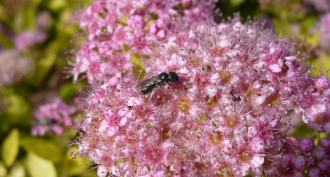 Animals
AnimalsBee underfeeds eldest daughter, creating ‘nursemaid’
By giving a brood’s firstborn female smaller portions and a low-protein diet, a mother bee can turn the offspring into a nursemaid for her younger siblings.
-
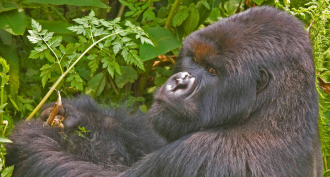 Health & Medicine
Health & MedicineCool Jobs: Linking animal health to human health
Scientists who watch out for diseases in wild animals also can play a role in keeping people from getting sick.
By Liz Devitt -
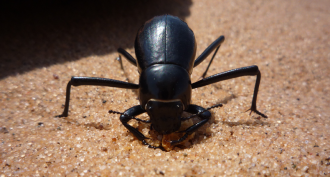 Materials Science
Materials ScienceBeetles offer people lessons in moisture control
Taking tricks from a beetle, researchers are designing surfaces that collect water from the air or resist frost buildup.
By Sid Perkins -
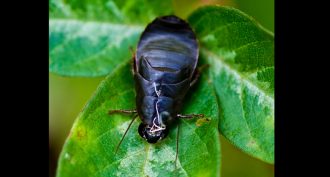 Chemistry
ChemistryGot milk? Roach milk could be a new superfood
Scientists have just figured out the recipe for cockroach milk. And that could be a first step toward making it part of the human diet. Yum!
By Dinsa Sachan